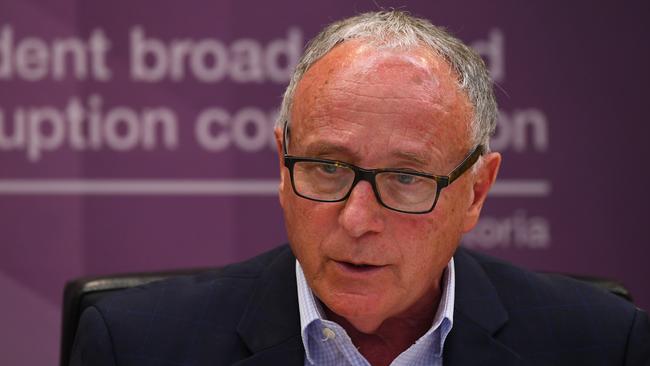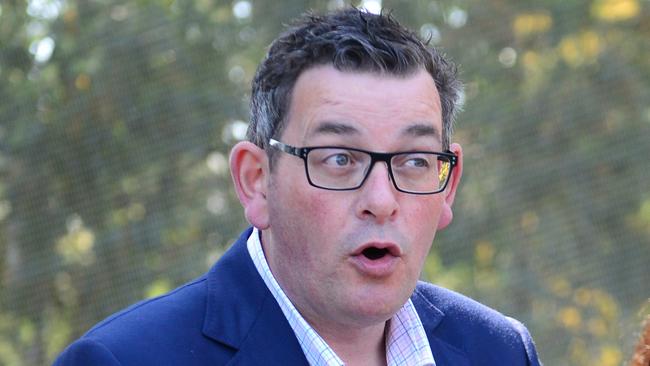Concerns raised over reduction in responsibility of ministers for government decisions
IBAC chief Robert Redlich has warned the centralisation of power around Daniel Andrews’ private office makes it ripe for “soft corruption”.

State Election
Don't miss out on the headlines from State Election. Followed categories will be added to My News.
Victoria’s corruption watchdog has warned the centralisation of power around Premier Daniel Andrews’ private office has created an environment ripe for “soft corruption”.
And IBAC commissioner Robert Redlich, KC, warned the Independent Broad-based Anti-corruption Commission’s framework meant it was powerless to investigate allegations of soft corruption that fell short of criminal conduct.
Speaking during a public lecture at the University of Melbourne on Thursday, Mr Redlich made a damning assessment of the general state of politics.
The outgoing commissioner, whose term ends in December, said there had been a “material decline in the standards of integrity” that had led to a “loss of public confidence in ministers, their advisers, and public service”.
He attributed a shift in standards to a concentration of decision-making around political leaders, a reduction in responsibility of ministers for government decisions, the increasing sphere of influence of ministerial advisers and an increasingly political public service. And he said an increased role and influence of political advisers had led to a corresponding reduction in authority and responsibility of ministers, increasing the risk of “soft corruption”.
“There’s been a continuing increase in the concentration of power around the heads of governments and their office,” he said. “In Victoria, we can see this concentration occurring with the number of staff in the premier’s private office increasing from around 20 in 2011 to 87 in 2019-20.

“In Victoria, 287 ministerial advisers were employed in 2021. By contrast the United Kingdom employed 113 special advisers during that same period, despite the fact that the British civil service is almost 10 times larger than the Victorian public service.”
Mr Redlich said a similar phenomenon could be seen in governments across the country, with “extraordinary resources … built up around the levers of government, extending their power and influence and inevitably altering the concentration of governance”.
“New risks arise through the potential reach of this swelling group of advisers that provide their leader with a greater capacity to influence those who are required to make a decision with little or no public transparency as to how it occurs,” he said.
But Mr Redlich warned Victoria’s IBAC was powerless to investigate acts of unethical behaviour that fell short of criminal conduct.
“There is a powerful limitation at play, when IBAC’s jurisdiction depends upon satisfaction that there is a relevant offence that should be investigated,” he said. “Such jurisdictional thresholds unduly restrict the commission’s capacity to investigate misconduct which falls short of criminal conduct.”
In June, IBAC launched a campaign urging the state’s public servants to blow the whistle if they were being improperly influenced.
The “speak up to stop it” campaign said any public sector worker was at risk of being influenced.
Victorian Ombudsman Deborah Glass is currently conducting her own investigation into the alleged politicisation of Victoria’s public service.
More Coverage
Read related topics:Daniel Andrews





